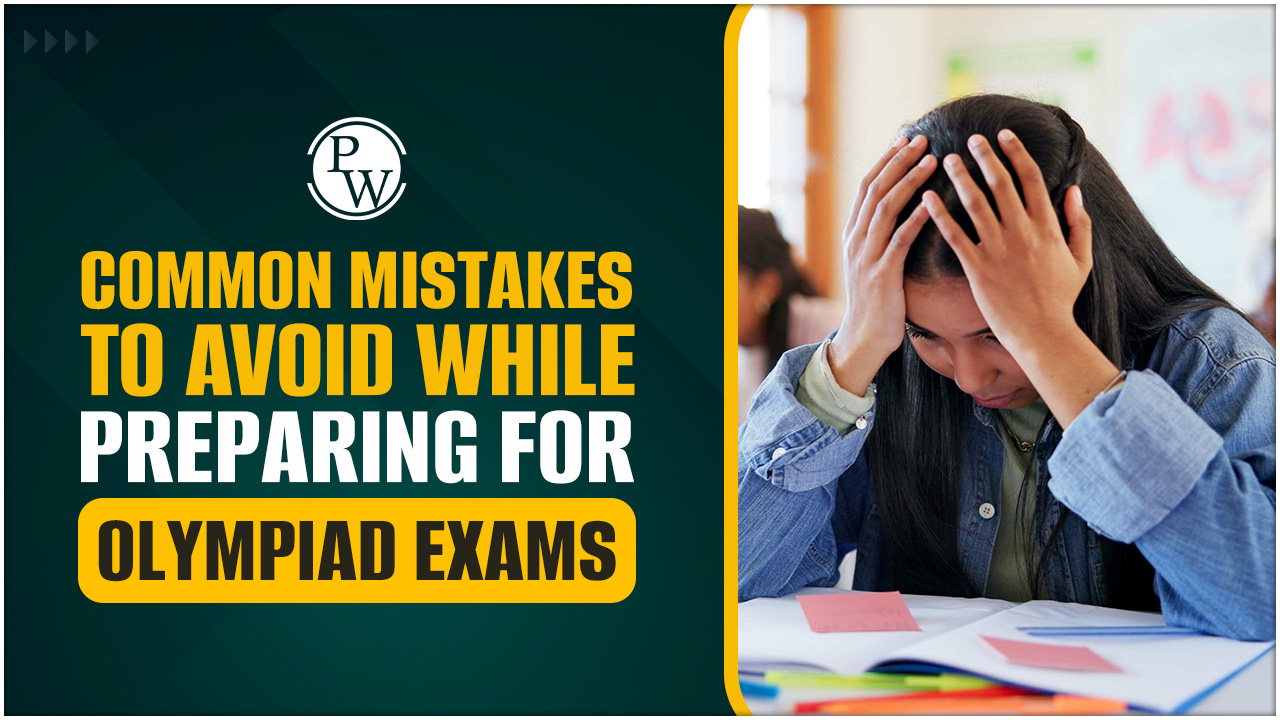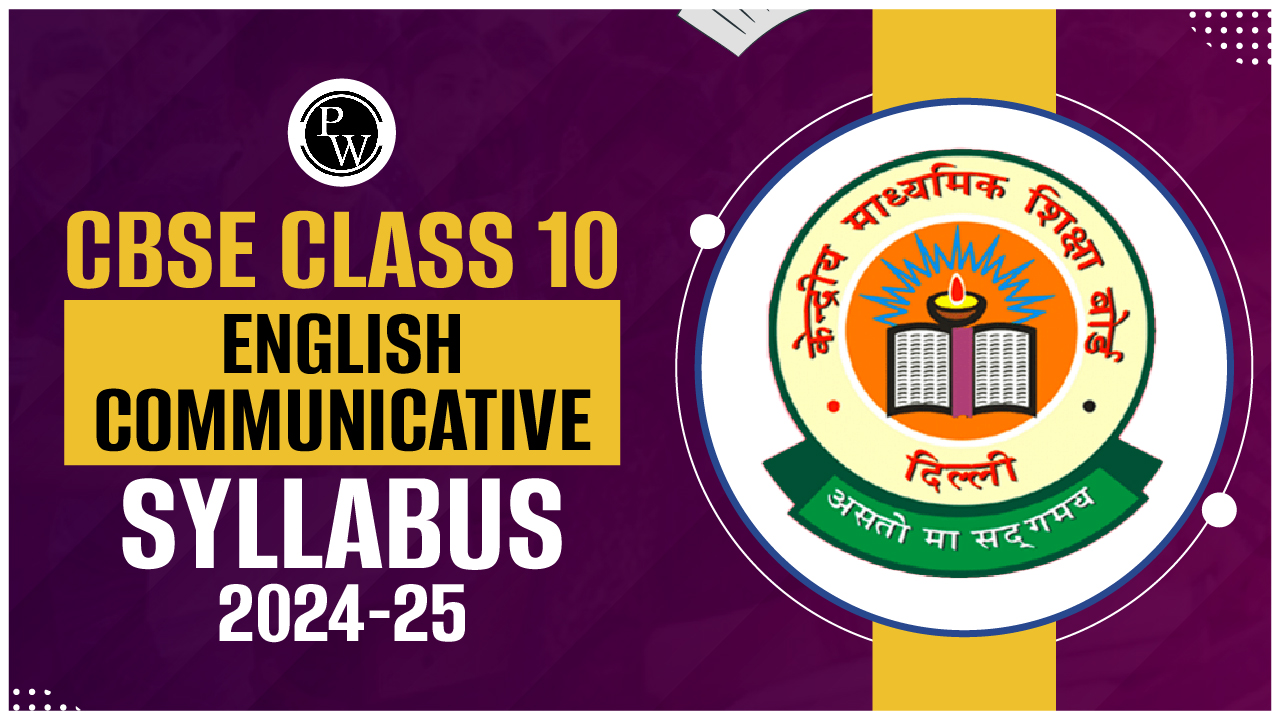Common Mistakes to Avoid While Preparing for Olympiad Exams

Common Mistakes to Avoid While Preparing for Olympiad Exams:- Olympiad exams are prestigious academic competitions held across schools globally for young minds. These exams are carefully designed to examine not just textbook knowledge, but also students’ logical reasoning, critical thinking, and problem-solving skills.
By targeting students from Grade 1 to Grade 12, Olympiads provide a platform for learners to go beyond classroom learning and compete at both national and international levels. National Olympiads play a crucial role in identifying students capable of representing their country on global platforms such as the International Olympiads. Whether you're preparing for a national or an international Olympiad, your journey demands discipline and focus, but if you don’t avoid certain common mistakes, your performance can suffer despite your utmost efforts. Check out the below article to learn the Common Mistakes to Avoid While Preparing for Olympiad Exams.
Check Out: Olympiad Books on PW Store
Types of Olympiad Exams
Olympiad exams are an exciting way for students to challenge themselves beyond school exams. They test how well you understand concepts and apply them, not just how well you memorise. Whether you’re interested in maths, science, English, or even general knowledge, there's an Olympiad for you!
|
Name of Olympiad |
What It’s About |
Main Focus / Key Topics |
|
IMO – International Maths Olympiad |
A global-level maths contest for school students held annually in different countries. |
Algebra, Geometry, Number Theory, Combinatorics, Logical Reasoning |
|
IEO – International English Olympiad |
Tests English skills across grammar, vocabulary, comprehension, and sentence structure. |
Grammar, Reading Comprehension, Word Usage, Sentence Formation |
|
NSO – National Science Olympiad |
A science-based competition that encourages analytical and scientific thinking. |
Physics, Chemistry, Biology, Logical Reasoning, Basic Science Concepts |
|
IGKO – International General Knowledge Olympiad |
Measures general awareness across subjects and current affairs. |
Current Events, History, Geography, Sports, Politics, Science Facts |
|
IOQM – Indian Olympiad Qualifier in Mathematics |
The first step toward India’s international math olympiad team. A gateway to RMO and INMO. |
Algebra, Arithmetic, Number Theory, Geometry, Pre-Olympiad Maths |
|
RMO – Regional Mathematical Olympiad |
A higher-level maths exam meant for serious problem solvers—leads to INMO. |
Complex Geometry, Advanced Number Theory, Proof-based Questions |
|
IBO – International Biology Olympiad |
An advanced biology competition for the world’s top young minds in life sciences. |
Genetics, Cell Biology, Ecology, Biochemistry, Evolution |
|
IOAA – International Olympiad on Astronomy & Astrophysics |
Tests deep understanding of the universe, stars, planets, and celestial phenomena. |
Astronomy Theory, Night Sky Observation, Astrophysics, Telescopic Skills |
|
NSTSE – National Level Science Talent Search Exam |
A diagnostic test that helps improve how students learn by identifying strengths and weaknesses. |
Physics, Chemistry, Biology, Maths, Application-Based Science Questions |
|
IOM – International Olympiad of Mathematics |
A fun and challenging competition designed to grow students’ interest in maths. |
Numbers, Geometry, Algebra, Logical Reasoning, Daily Life Maths |
Common Mistakes to Avoid While Preparing for Olympiad Exams
Preparing for an Olympiad exam can be both exciting and demanding. Whether it’s the math olympiad, or national science olympiad, these competitive exams test more than just memory, they challenge students' logical thinking, conceptual understanding, and problem-solving abilities. As students gear up for these prestigious Olympiad competitions, it's essential to be aware of common mistakes that can affect performance. Check out these Common Mistakes to Avoid While Preparing for Olympiad Exams:-
1. Lack of Proper Planning
One of the biggest mistakes students make is starting without a structured study plan. Without clear goals and timelines, preparation can become inconsistent. A well-planned schedule ensures balanced learning and covers all essential topics.
2. Ignoring the Exam Pattern and Syllabus
Each Olympiad exam has its own pattern, often different from school exams. Students who skip understanding the format may struggle with time management and question interpretation. Always review the syllabus and previous years' papers to know what to expect.
3. Relying Only on School Textbooks
While school books provide foundational knowledge, Olympiads require deeper understanding and application. For success in exams like the mathematics olympiad or national science olympiad, students should use Olympiad-specific guides, workbooks, and online practice platforms to enhance learning.
4. Avoiding Mock Tests and Practice Papers
Skipping mock tests is a common yet serious mistake. Practice papers simulate the actual exam environment, helping students build confidence, improve speed, and check their readiness. Regular practice is key for any Olympiad competition.
5. Not Focusing on Conceptual Understanding
Olympiads are not about rote learning. Memorising formulas without understanding concepts often leads to confusion in complex problems. Success in the math olympiad or science olympiad demands clarity of concepts and their real-world application.
6. Poor Time Management
Students who don’t practice under timed conditions often find it difficult to complete the paper. Managing time effectively during both preparation and the actual Olympiad exam is crucial for scoring well.
7. Ignoring Weak Areas
It’s easy to keep revisiting familiar topics, but ignoring weak areas can backfire. A balanced preparation strategy focuses on both strengths and areas that need improvement.
8. Lack of Regular Revision
Learning without revision leads to forgetfulness. To keep important concepts fresh, students should include frequent revision in their study routine, especially before exams like the national science olympiad or mathematics olympiad.
9. Overconfidence or Underconfidence
Both overconfidence and self-doubt can be harmful. Some students skip practice thinking they’ve mastered the syllabus, while others fear difficult questions. A steady, confident approach with regular evaluation is ideal.
Also Check, IOQM Olympiads Mathematics Comprehensive Guide For 2025 Exams
Smart Strategies for Olympiad Exam
Whether you are preparing for the National Science Olympiad, Mathematics Olympiad, or any other Olympiad competition, the right strategies can make a significant difference in your performance. Below are some effective and practical strategies to help you prepare better.
1. Know Your Exam Inside Out
Begin by understanding the exam pattern, marking scheme, and complete syllabus. It is essential to know whether the exam is at the national or international level and if it includes multiple rounds or stages.
2. Start Early and Stay Consistent
Early preparation gives you enough time to cover all topics systematically. Starting your preparation at least three to four months in advance allows room for revision and practice without last-minute stress.
3. Create a Structured Study Plan
Design a daily and weekly study schedule that balances school work and Olympiad preparation. Allocate more time to difficult subjects and include regular intervals for revision and mock tests.
4. Strengthen Fundamental Concepts
Focus on building a strong foundation in core subjects. Ensure that you understand the concepts thoroughly before moving on to advanced problems, especially in subjects like mathematics and science.
5. Use Olympiad-Specific Study Material
Rely on resources specifically designed for Olympiad preparation, such as SOF materials, and online practice platforms. These offer chapter-wise questions and cover the Olympiad syllabus in detail.
6. Practise Logical and Analytical Thinking
Olympiad exams test your ability to apply concepts, not just recall them. Regularly solve logical reasoning questions, puzzles, and analytical problems to develop problem-solving skills.
7. Focus on Time Management
Practise solving questions within a fixed time frame to improve speed and accuracy. Simulating actual exam conditions during mock tests can help you manage time effectively during the real exam.
8. Identify and Improve Weak Areas
Monitor your progress by keeping track of topics that need improvement. Focus additional efforts on weak areas, and seek help from teachers or mentors when needed.
9. Revise Regularly and Systematically
Make revision a part of your daily routine. Create summary notes, flashcards, and formula sheets to revise key concepts quickly before the exam.
Read More: Benefits of Olympiad Exams to Students
Common Mistakes Olympiad exam FAQs
1. What is an Olympiad exam?
Olympiad exams are competitive tests conducted at the national and international levels to assess students’ understanding of subjects like Maths, Science, English, and more.
2. Who can participate in Olympiad exams?
Students from Grade 1 to Grade 12 can participate, depending on the Olympiad. There are different levels for different age groups.
3. Are Olympiad exams only for toppers?
Not at all! Olympiads are for any student who wants to challenge themselves and improve their subject knowledge. You don’t have to be a topper, you just need curiosity and commitment.
4. Can I skip mock tests if I feel confident in the subject?
No. Mock tests help in identifying weak areas, improving time management, and familiarising you with the question format. Skipping them can lead to unexpected difficulties during the actual exam.
5. Is revision really necessary if I’ve already studied everything once?
Yes. Without regular revision, it is easy to forget formulas and important concepts. Periodic revision recalls your learning and ensures better remembering.








